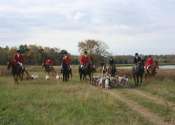Long-term stress in dogs linked to the owner-dog relationship
Researchers at Linköping University have investigated whether the stress levels of dogs are affected by the people they live with. Stress levels for the past several months can be determined in both dogs and humans by measuring ...








